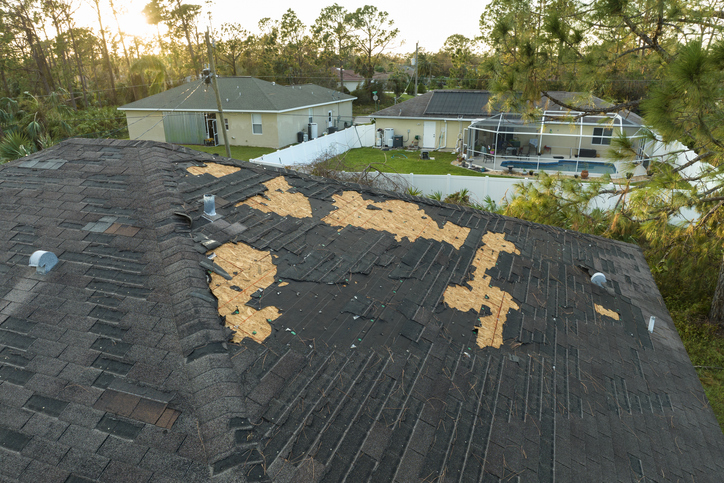When it comes to maintaining the integrity of your home, a well-functioning roof is crucial. For homeowners in Florida, understanding the nuances of roof replacement laws is essential. With unique weather challenges and specific regulations, Florida roof replacement law plays a significant role in ensuring that you navigate the process smoothly. This article provides a comprehensive overview of what homeowners need to know about Florida roof replacement law in 2024.
Overview of Florida Roof Replacement Law
Florida roof replacement law encompasses various regulations and guidelines designed to protect homeowners and ensure that roofing work is performed to high standards. These laws cover aspects such as permits, insurance requirements, contractor responsibilities, and more. Understanding these regulations is vital for homeowners to avoid potential legal and financial pitfalls.
Key Regulations Under Florida Roof Replacement Law
Permits and Licensing
One of the primary components of Florida roof replacement law is the requirement for permits and licensing. Homeowners must ensure that any roofing work performed on their property is done by licensed contractors. The contractor must hold a valid Florida roofing contractor license, which ensures that they have the necessary skills and knowledge to perform the job.
Permits: In Florida, roofing projects typically require a permit from the local building department. The permit ensures that the work meets local building codes and safety standards. Homeowners should verify that their contractor obtains the necessary permits before starting any roofing work.
Licensing: Contractors must be licensed by the Florida Department of Business and Professional Regulation (DBPR). This licensing process includes passing exams and demonstrating experience in the roofing industry. Homeowners should verify the contractor’s license status through the DBPR’s online license verification tool.
Additionally, homeowners should be aware that roofing insurance plays a crucial role in protecting their property during the project. Contractors are required to carry adequate insurance coverage to address potential damages or injuries.
Insurance Requirements
Another critical aspect of Florida’s roof replacement law is insurance. Contractors are required to carry liability insurance and workers’ compensation insurance. This protects homeowners in case of damage to their property during the roofing project or if a worker is injured on the job.
Liability Insurance: This insurance covers any damage that might occur to the homeowner’s property as a result of the roofing work. It provides financial protection and ensures that the contractor is accountable for any mishaps.
Workers’ Compensation: This insurance covers medical expenses and lost wages for workers who are injured while working on the roof. It also protects homeowners from being held liable for injuries sustained by the contractor’s employees.
Roof Replacement Standards and Codes
Florida’s unique climate, with its frequent storms and high humidity, necessitates specific standards and codes for roof replacements. These regulations ensure that roofs can withstand severe weather conditions and provide long-lasting protection.
Building Codes: Florida has strict building codes that dictate the materials and methods used for roof replacements. The Florida Building Code (FBC) includes provisions for wind resistance, energy efficiency, and other factors relevant to roofing in the state.
Wind Mitigation: Due to the risk of hurricanes and tropical storms, Florida roof replacement law includes wind mitigation requirements. Roofing systems must be designed to resist high winds, and certain materials and installation techniques are mandated to enhance wind resistance.
Florida Law Roof Replacement: What to Expect
Understanding Florida law roof replacement requirements helps homeowners navigate the process and avoid common issues. Here’s what to expect when dealing with roof replacement under Florida law.
Contractual Agreements
Before any roofing work begins, homeowners should have a detailed contract in place. This contract should outline the scope of work, materials to be used, payment terms, and a timeline for completion. A well-drafted contract protects both parties and provides a reference in case of disputes.
Scope of Work: The contract should clearly define what work will be performed, including any removal of old roofing materials and installation of new ones.
Payment Terms: Payment terms should be outlined in the contract, including the deposit amount, progress payments, and final payment. Avoid paying the full amount upfront; a reasonable deposit is standard.
Timeline: The contract should include an estimated timeline for the completion of the project. This helps homeowners manage expectations and ensures that the contractor adheres to a schedule.
Dispute Resolution
In the event of a dispute between the homeowner and the contractor, Florida law provides mechanisms for resolution. Homeowners have several options for addressing conflicts:
Mediation: Mediation involves a neutral third party who helps both parties reach a mutually agreeable solution. This process is often faster and less expensive than litigation.
Arbitration: Arbitration is a more formal process where a neutral arbitrator makes a binding decision on the dispute. It is generally faster than going to court but may involve legal fees.
Legal Action: If other resolution methods fail, homeowners may pursue legal action. This involves filing a lawsuit and potentially going to court. It’s advisable to consult with a legal professional before taking this step.
Insurance Claims and Roof Replacement
Many homeowners rely on insurance to cover the costs of roof replacement, especially after damage from storms or other incidents. Understanding how Florida law interacts with insurance claims is crucial for a smooth process.
Filing a Claim: When filing an insurance claim for roof damage, provide detailed documentation, including photos and estimates from contractors. The insurance company may send an adjuster to assess the damage. Here, a Florida claims adjuster license ensures that the adjuster is properly qualified to handle your claim.
Insurance Coverage: Review your insurance policy to understand what is covered. Some policies may have exclusions or limitations related to roof replacement.
Contractor Recommendations: Insurance companies often work with preferred contractors. However, homeowners have the right to choose their contractor. Ensure that your chosen contractor is licensed and insured, as required by Florida roof replacement law.
Adjuster Company: Consider consulting with an adjuster company or Care Public Adjusters if you need assistance navigating the insurance claim process. Public adjusters can help ensure that you receive a fair settlement from your insurance company.
Environmental Considerations
Florida’s climate and environmental conditions also play a role in roof replacement. Homeowners should consider eco-friendly options and compliance with local regulations regarding environmental impact.
Energy Efficiency: Florida’s Building Code includes provisions for energy efficiency in roofing materials. Opting for energy-efficient materials can reduce your home’s energy consumption and lower utility bills.
Recycling: Many roofing materials can be recycled. Check with your contractor about recycling options for old roofing materials to minimize environmental impact.
Conclusion
Navigating Florida roof replacement law can seem daunting, but understanding the key regulations and requirements can help homeowners make informed decisions. From permits and licensing to insurance and contractual agreements, being aware of these factors ensures a smooth and compliant roof replacement process. By adhering to Florida’s specific laws and guidelines, you can protect your home, your investment, and your peace of mind.
Whether you’re planning a roof replacement or addressing damage, staying informed about Florida roof replacement law will help you manage the process effectively and avoid common pitfalls. For further guidance, consider consulting with a legal professional or a reputable roofing contractor to ensure that all aspects of your roof replacement comply with current regulations. Additionally, working with care public adjusters or an adjuster company can provide valuable support in managing your roofing insurance claims and securing a fair resolution.

